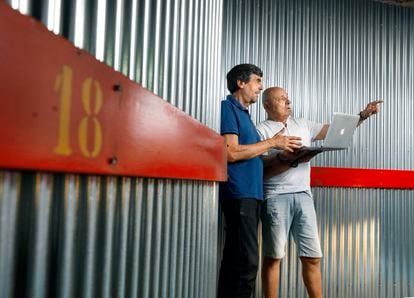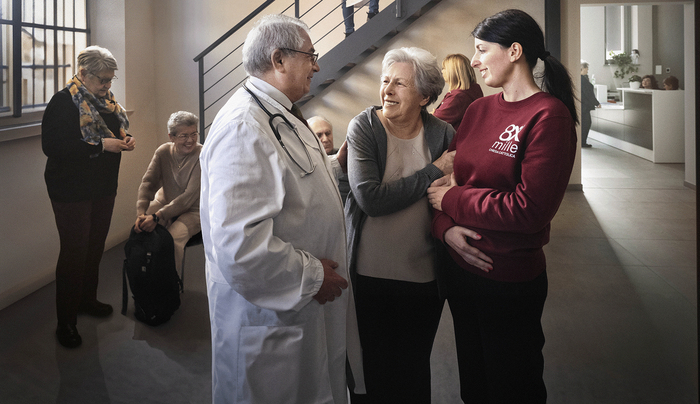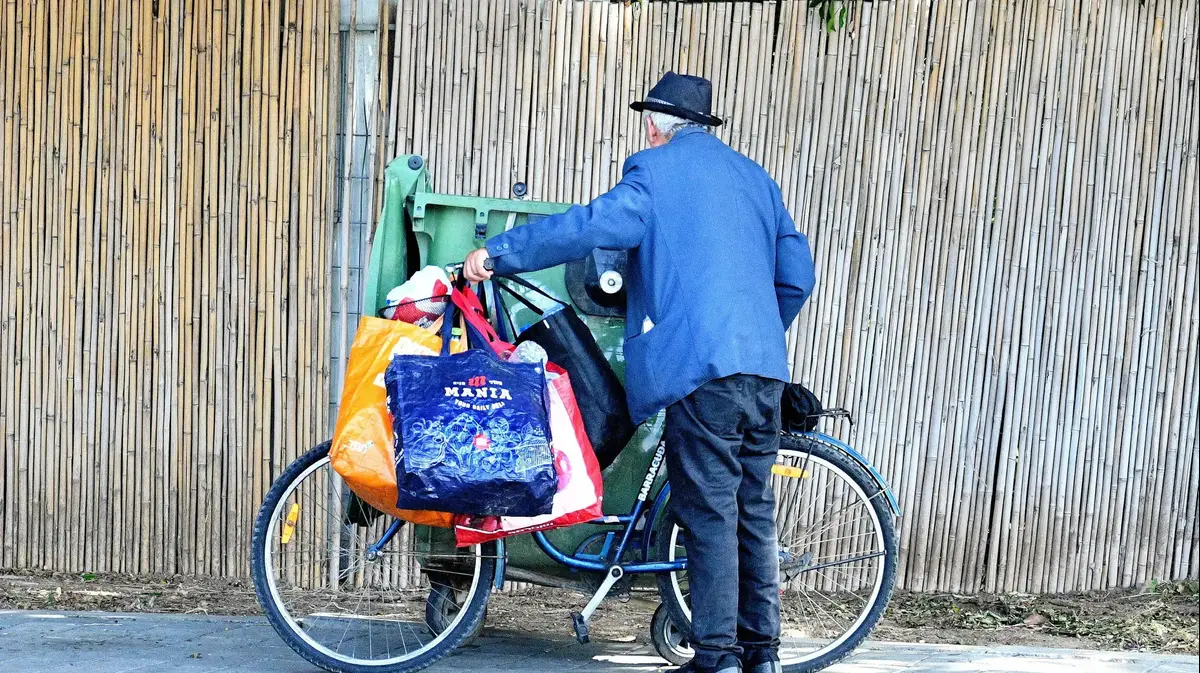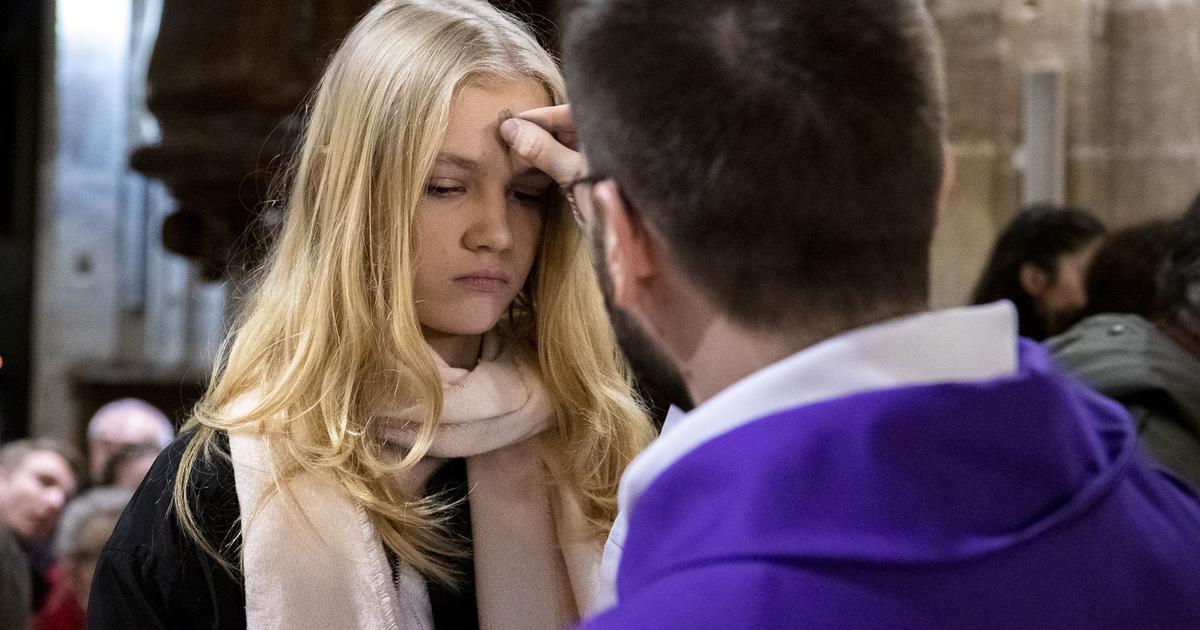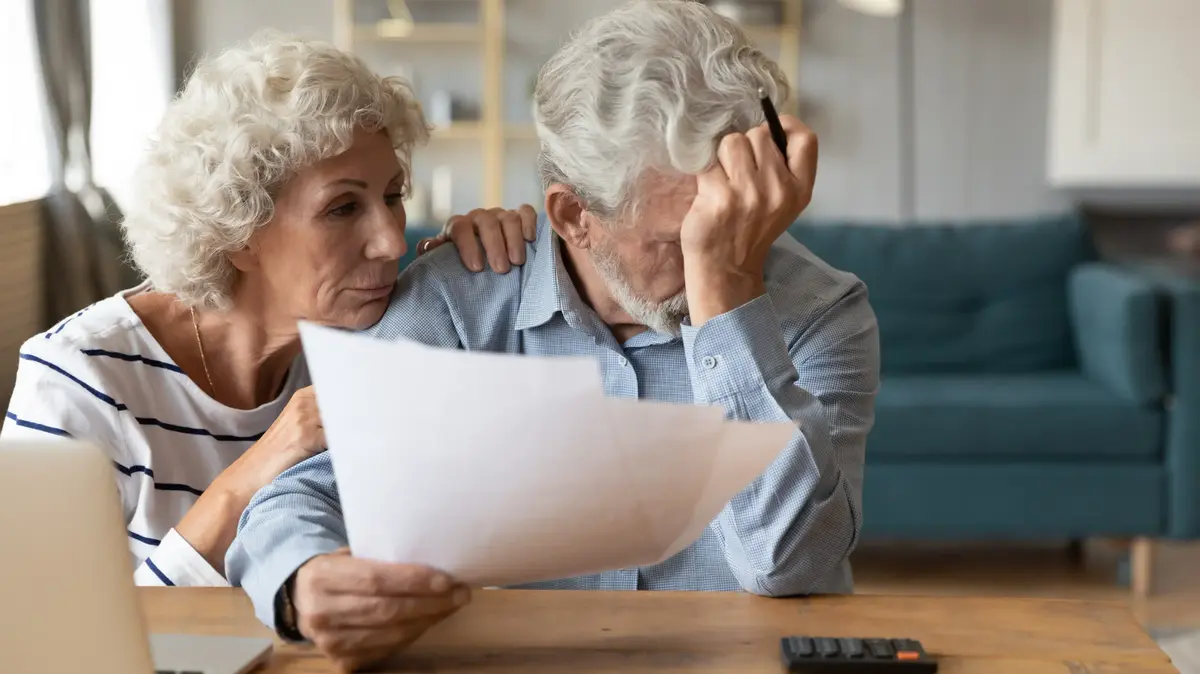The secret is in the hands.
The hands of Hugo, who is 12 years old and has volunteered for a program at his school for the youngest members of the family to teach the elders the secrets of the digital world.
The hands of Francisco, who for 40 years watched from his taxi as Madrid went from black and white to color and who now, after retiring, writes down in a large notebook with squared pages the advice that Kristy gives him to upload his paintings to the infinite internet gallery
The hands that retired doctor Carlos San Juan raised a few months ago as a sign of help:
"I'm older, not an idiot."
That cry is already a clamor, that of all those who impotently contemplate how the branches of their lifelong bank, and even their family doctor, became as if by magic in a mobile phone application.
While they wait for the Administration and the banking sector to go from promises to deeds and make their lives easier — he who waits despairs, says the popular voice — necessity is becoming a virtue.
From pensioners' associations, from schools, from non-governmental organizations or foundations dedicated to volunteering, initiatives are emerging to respond, now, to the call for help from the elderly.
Hugo Tinoco explains how to use a computer to his grandmother Toñi González at his home in Fuenlabrada (Madrid).Francis Tsang
The rescue operation is underway, and Aarón Muñoz, who is 15 years old and studies at the Alhucema school in Fuenlabrada (Madrid), arrives at the home of his paternal grandparents, Primitiva and Vicente, armed with patience, ready to win the battle.
—Look, Grandma, that's how you put your cell phone on silent.
This is important, because there are a lot of people who don't know, and when they go to the doctor or hospital it starts ringing and can bother others.
—Oh, son, I'll turn it off and that's it —replies Primitiva González.
—Well, there's another thing here, you see? It's used to put the airplane mode, and it's very good in case you go on a trip and they say over the loudspeakers that you turn off your cell phone so as not to disturb the pilot.
—Yes, yes, yes…
—And this is used to raise or lower the brightness of the screen, because such strong light affects the eyes, and if you hit it here it no longer bothers you.
“Look how good, Aaron.
Primitiva is delighted, in part to get into the intricacies of the mobile, and, above all, to enjoy the company and attention of her grandson, their hands together on the mobile phone and later on the computer.
From the back of the living room, Vicente, the grandfather, does not have everything with him.
A few minutes ago his phone rang, an unknown number and a suspicious call message appeared on the screen.
“This is the fourth time today”, he murmurs, “surely they will be the ones who promise to lower the electricity bill.
Today I am not going to answer, but sometimes yes and I argue with them.
I tell them: you are going to make it so cheap that in the end you will owe me money.
I recognize that they are earning a salary, but I am not going to receive anything and, furthermore, I like things in person, not on the computer or on the mobile.
I have verified that they give me an appointment with the doctor sooner if I go to the clinic to ask for it than if I call the telephone number that appears on the health card... And, for bank matters, the same thing: I get up early and go to the branch.
Money things, the further away from the internet, the better…”.
Luis Bengochea and Esteban Sánchez, at the center for the elderly in Arroyomolinos (Madrid). Francis Tsang
Yolanda Rueda, founder and president of Cibervoluntarios, explains that her main objective remains the same after 20 years of work:
—You have to lose your fear of technology.
And for this there is nothing better than someone, with warmth and closeness, helping you to overcome that barrier in which you consider yourself so vulnerable.
"And how do you get it?"
“We approach people in their secure environment.
It is easier, for example, to go to an association for the elderly, where the members feel safe, than to try to teach them in a distant and unknown environment.
Once the first fears have been overcome, we try to make them take advantage of such powerful tools as a mobile phone or a tablet.
The data that Rueda handles gives an idea of the magnitude of the challenge.
8% of the active population has never connected to the Internet and 45% of Spaniards still do not have sufficient digital skills to take advantage of the Internet. "We are at the bottom of Europe in digital," he adds, "our preparation is lower than the European average, and that must be reversed”.
To this we must add that Spain is one of the countries that is aging at a faster rate: more than 9.3 million people are over 65 years of age, which constitutes a fifth of the total population.
Kristy Doyle and Francisco Esteban, in Miraflores de la Sierra (Madrid).Francis Tsang
Kristy Doyle is Scottish, she has been in Spain for 25 years and has been collaborating with Cibervoluntarios since 2020. Today she has a meeting with Francisco Esteban in the Plaza de España in Miraflores de la Sierra (Madrid), next to the center for the elderly.
He brings the notes she took on her last date, plus a new cell phone and a shiny tablet, packaging and all.
Since she retired from the taxi, her main occupation has been painting.
Now she wants to take advantage of the digital knowledge she is acquiring to show her paintings online. Kristy says that, in addition to explaining the basic operation of the telephone and the most common applications, she tries to make Francisco and other retirees discover that "the Internet is a very fun world, where they can do everything from crossword puzzles to looking for recipes.”
“We try to get them to explore, not to lose their curiosity,
that they do not believe that digital is a wall, and if they consider it a wall, that they learn to climb it.
These people have been through a lot.
I don't think this is a bigger handicap than others they've had in life,” he says.
Hugo Tinoco is 12 years old, and Luis, 72. Both have accepted the same challenge as Aarón and Kristy.
Hugo, who lives in Fuenlabrada and studies at the Alhucema school, has made it his mission — like his colleague Aarón — to serve as a guide to his grandmother Toñi online.
Luis Bengochea, who back in 1969 was studying Physics, Automatic Calculation and worked with the first computer that IBM donated to the old University of Madrid, has become after retiring another volunteer willing to help those in his fifth to handle the networks.
Today he has visited the center for the elderly in Arroyomolinos (Madrid), where some play billiards and others, like Esteban Sánchez, try to join a world hitherto unknown.
—The first thing I say when I start classes with a new group —explains Bengochea— is congratulations.
Congratulations.
If you are here, it is because you want to learn.
Since one of the first barriers is the refusal to learn.
I can have an advantage by being the same age as the students, and they realize that if I can do it, so can they.
-The second step?
—Teach them how the telephone works, the reason for things.
And patience.
Many times the frontier for learning is not necessarily in age or level of training.
In my immediate environment I have people with a solid university education, even doctors or engineers, who rejected technology, who rejected mobile phones.
You have to be patient to help them cross a river that they never thought they would find on their way.
The success of this journey is very gratifying for them.
And for me…

